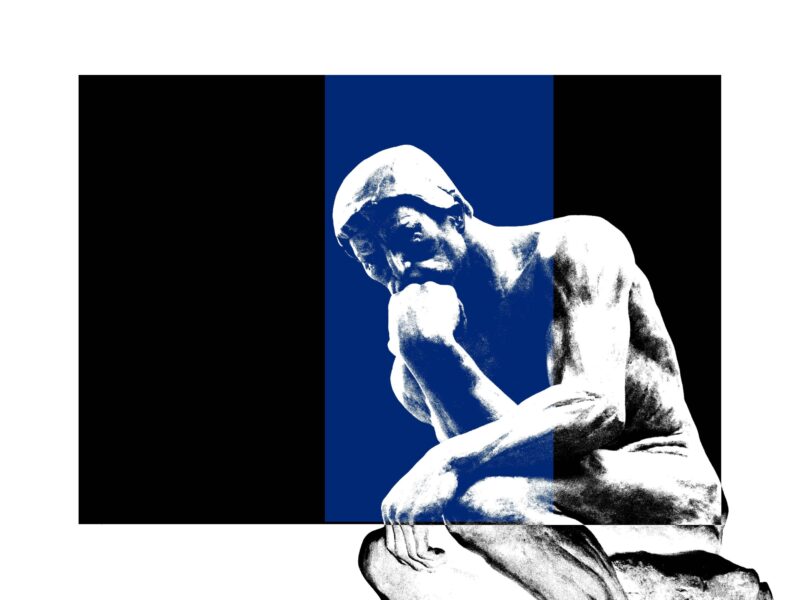Are you having a bad day? Is that D in Stats looming over you? Do you think your girlfriend is losing interest in your relationship? The antidote to your problems isn’t a self-help book, studying or hitting the gym; it’s two simple letters with an ampersand wedged in between: A&E.
This televised cure-all has three primetime programs that can’t help but make you say, “Gee, I guess my life isn’t that bad.” Intervention, Hoarders and Heavy, which premiered on Monday, feature people that are guaranteed to live crappier lives than you.
Intervention was A&E’s first foray into this moneymaking genre of blatant exploitation. Each week, two different drug addicts with non-intersecting existences are tailed by cameras that document the depravity of their lives and the emotional toll that their addiction wreaks on their family members. At some point, unbeknownst to the addicts, they face an intervention attended by loved ones and a real life interventionist. At the end of the program, a mere minute-long blurb explains the success, or lack thereof, of the intervention while the credits are already rolling.
Hoarders, like Intervention, packs two unfortunate souls into every episode. In this series, they suffer from an extreme form of OCD that results in compulsive hoarding. The participants have an emotional attachment to nearly every piece of garbage they find and cannot will themselves to throw anything away.
At the end of the program, garbage men and psychologists team up and try to rid the hoarders’ homes of clutter. They are nearly always met with extreme opposition from the very people they are trying to help.
The History Channel has a similar program called American Pickers. However, American Pickers seemingly celebrates the psychological disorders of hoarders portraying them as fun and eccentric and their garbage as vintage Americana.
This week we were introduced to Heavy, another potential cash cow. The show follows the tried and true format of both Intervention and Hoarders except Heavy deals with morbid obesity. Nothing makes viewers feel better about their love handles than seeing somebody with twelve more than they have. The people featured in Heavy are all grossly overweight and throughout the show they are encouraged to shed a few hundred pounds.
In one of the show’s commercials, Debbie, who weighs 402 pounds, somberly admits, “I’m 44 years old and still a virgin.” Another ad features Tom who weighs 638 pounds. Tom is so overweight that prolonged movement is all but impossible.
The only sound in the first 10 seconds of the ad is Tom wheezing profusely as he climbs into his pickup truck.
What bothers me most about A&E is the network’s utter disingenuousness. A&E exploits people with psychological disorders with total impunity because it’s all done under the guise of “helping them.” A variety of experts, from former drug addicts to personal trainers, are hired to help the subjects and sometimes they do succeed. That’s great, but it’s not why people watch these programs and A&E clearly knows it.
I would argue that nearly all television shows that subscribes to A&E’s slogan of “real life, real drama” exploits people to some degree. Yet, when Maury Povich trots his poor, black guests in front of a booing and jeering audience, he’s not trying to fool anyone. These guests then have the paternity of their children revealed to them in front of this group of total strangers. No one would ever credit Maury with anything but blatant exploitation, but at least he’s honest about it unlike A&E.
Where Maury has a studio audience to jeer and boo, but A&E lets its viewers fill that judgmental void in the comfort of their homes. What’s worse, unlike Maury’s guests, the problems of people on Intervention, Hoarders and Heavy are psychological in nature and can’t be solved with buying a pack of condoms at a gas station.
I’m not saying that my palate is too refined for these programs. I watched Heavy with my roommates on Monday and threw out my fair share of “OMGs” at the TV and I’m certainly not proud of myself. The people on these programs have serious psychological issues and we should all feel guilty about the perverse enjoyment that we get from their plight. The Germans have a word for this phenomenon which every student enrolled in Psych 101 knows: schadenfreude – pleasure derived from the misfortune of others. I propose a new short-form for schadenfreude: A&E.



